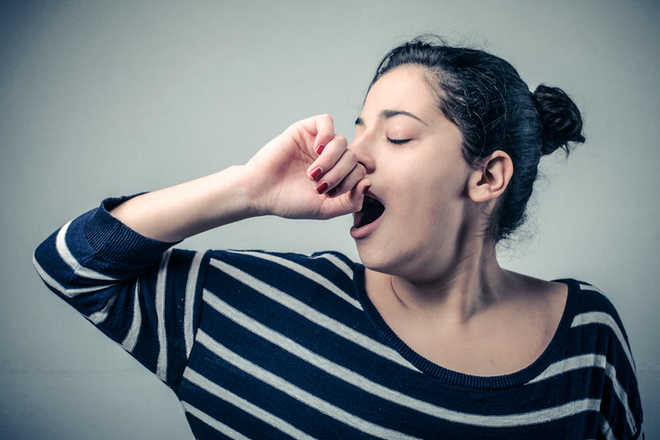
Thinkstock photo
Los Angeles, August 11
Scientists have identified a gene outside the brain that is responsible for recovery from sleep loss, a discovery that may lead to greatly improved treatments for insomnia and other sleep disorders.
Researchers found that increasing the level of Bmal1 — a critical master gene that regulates sleep patterns — in skeletal muscle makes mice resistant to sleep deprivation.
“When we first saw the importance of the muscle, we were surprised,” said Ketema Paul, associate professor at University of California, Los Angeles (UCLA) in the US.
“At first we did not believe it, so we repeated the experiment several times. We finally realised this is not a mistake; this is real,” said Paul.
The research, published in the journal eLife, is the first evidence that a biological clock in the muscle can communicate with the brain, and is potentially good news for people who lose sleep because of factors including a crying newborn or a job that does not allow for normal sleep cycles.
Chronic sleep deprivation increases the risk for heart disease, stroke, diabetes, infectious diseases and other illnesses, said Paul.
Having a resistance to sleep loss may reduce the risk of getting these diseases and increased Bmal1 in the skeletal muscle may provide this resistance, he said.
Turning Bmal1 off throughout the brain and body in mice, using a molecular genetic technique, impaired their ability to rebound from sleep deprivation, the researchers said.
Restoring the gene in the skeletal muscle enabled the mice to rebound from the sleep deficit, while restoring the gene in the brain, surprisingly, did not, they said.
Increasing the level of this gene in skeletal muscle also made mice less sleepy after longer periods of sleep deprivation.
The researchers increased the level by genetically inserting extra copies of the gene into the genome of the mice.
“We show that not only is Bmal1 responsible for the ability to recover from sleep loss, but also that Bmal1 expression in the skeletal muscle is responsible for that process,” Paul said.
“When we increased Bmal1 in the skeletal muscle, the mice were able to tolerate more sleep loss. That suggests the skeletal muscle is directly communicating with the brain,” he said.
In one part of the study, the researchers kept mice awake for almost 24 consecutive hours.
They measured the brain activity of the mice with an electroencephalogram and found that the brain activity revealed the mice with the additional Bmal1 in skeletal muscle - about six times the normal amount - were much less sleepy than the mice without additional Bmal1.
The mice with increased Bmal1 slept substantially less than the other mice during the 24 hours following the sleep deprivation.
The researchers removed Bmal1 in the skeletal muscle by molecularly excising the gene from the mouse genome, and they found that the removal impaired the mice’s ability to recover from sleep loss. — PTI



























